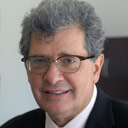Paul Shechtman

March 01, 2011 | New York Law Journal
Supreme Court to Hear Confrontation Clause Case TomorrowPaul Shechtman, a partner at Stillman, Friedman & Shechtman and an adjunct professor at Columbia Law School, reviews a Confrontation Clause case of considerable importance in which the New Mexico Supreme Court rejected a claim that the prosecution's calling of a supervising analyst, instead of the analyst who performed the blood-alcohol content test at issue, was unconstitutional.
By Paul Shechtman
15 minute read
September 02, 2008 | New York Law Journal
Court Invalidated Death Penalty, Grappled With Evidence, SearchesPaul Shechtman, a partner at Stillman, Friedman & Shechtman and an adjunct professor at Columbia Law School, writes that the 37 criminal cases the Court decided in the 2007-2008 term touched on topics such as post-release supervision, warrantless body cavity searches, the admissibility of forensic reports, double jeopardy issue following the redefinition of depraved indifference murder and more.
By Paul Shechtman
17 minute read

January 13, 2006 | New York Law Journal
'People v. Goldstein' and Rule 703Paul Shechtman, a partner with Stillman & Friedman, writes that the Court of Appeals got it right in reversing the conviction of Andrew Goldstein, holding that the inadmissable information the psychiatrist expert based her opinion on was offered as testimony, and that the 2000 amendment to Rule 703 of the Federal Rules of Evidence, in an attempt to balance evaluation of expert testimony by the jury and the hearsay rule, seems to have gotten it wrong.
By Paul Shechtman
7 minute read

October 04, 2011 | New York Law Journal
Supreme Court Review in New Orleans Case Puts Spotlight on 'Brady'Paul Shechtman, a partner at Zuckerman Spaeder and an adjunct professor at Columbia Law School, writes that the U.S. Supreme Court recently granted certiorari in a case which presents the question: "[i]s there a reasonable probability that, given the cumulative effect of the Brady . . . violations, the outcome of . . . trial would have been different?"
By Paul Shechtman
9 minute read
August 31, 2009 | New York Law Journal
Not Many Fireworks During a Workmanlike TermPaul Shechtman, a partner at Stillman, Friedman & Shechtman and an adjunct professor at Columbia Law School, writes: With the meaning of "depraved indifference" resolved and no Crawford decision on the docket for the first time in recent years, the 2008-2009 term of the New York Court of Appeals was short on fireworks. Only one case, People v. Weaver, attracted the interest of the mainstream media. Otherwise, the Court resolved 66 criminal cases in a workmanlike fashion, deciding 55 cases unanimously.
By Paul Shechtman
16 minute read

November 03, 2009 | New York Law Journal
Revisiting 'Bruton' Issue on Confessions and Limiting InstructionsPaul Shechtman, a partner at Stillman, Friedman & Shechtman and an adjunct professor at Columbia Law School, discusses a recent Second Circuit decision that allowed the use of one defendant's confession with references to the second defendant replaced with the words "another person." The court found the confession passed muster under Tutino, reasoning that the jury had to refer to other trial evidence to link the second defendant to the redacted statement, but is Tutino the right test?
By Paul Shechtman
8 minute read

April 17, 2008 | New York Law Journal
'Giles': Victim's Weeks-Old Words, Confrontation ClausePaul Shechtman, a member of Stillman, Friedman & Shechtman, writes that on April 22, 2008, the U.S. Supreme Court will hear oral argument in Giles v. California, which promises to be an important Confrontation Clause decision.
By Paul Shechtman
12 minute read

April 04, 2005 | New York Law Journal
The Meaning of Depraved-Indifference Murder; New Legislation?Paul Shechtman, a partner at Stillman & Friedman, writes that four times in the past three years, the New York Court of Appeals has considered the meaning of depraved indifference murder, Penal Law �125.25(2), and three times it has overturned murder convictions on the ground of legally insufficient evidence.
By Paul Shechtman
16 minute read

January 11, 2010 | New York Law Journal
'People v. Brown': One Expert Is EnoughPaul Shechtman, a partner at Stillman, Friedman & Shechtman and an adjunct professor at Columbia Law School, writes that lurking in the background in recent rulings is a question that the U.S. Supreme Court has yet to address but our Court of Appeals has: Does the Confrontation Clause permit an expert to base her testimony on constitutionally inadmissible hearsay if such information is of a kind relied upon by professionals in the field?
By Paul Shechtman
9 minute read

May 22, 2008 | New York Law Journal
'Shellef': Rules 8(a) and 8(b) and Joinders of CountsPaul Shechtman, a member of Stillman, Friedman & Shechtman, writes that the recent Second Circuit decision in United States v. Shellef raises a question that should have an easy answer: "whether Rule 8(a) or Rule 8(b) applies when a defendant in a multidefendant, multicount prosecution . . . challenges the joinder of a count in which he is the only defendant charged." While the court acknowledged that the answer is "not well-settled" and that its prior cases might be mistaken, it declined to opine on the issue, as the outcome of the appeal would be the same under either rule. So what is the answer?
By Paul Shechtman
6 minute read
More from ALM
- Scan In Progress: Litigators Leverage AI to Screen Prospective Jurors 1 minute read
- Legal Speak at General Counsel Conference East 2024: Match Group's Katie Dugan & Herrick's Carol Goodman 1 minute read
- Legal Speak at General Counsel Conference East 2024: Eric Wall, Executive VP, Syllo 1 minute read



